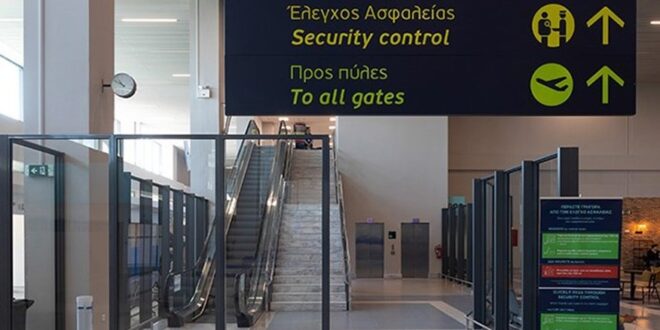Saturday our Civil Aviation Authority issued its updated guidelines for travel into Greece.
These guidelines are applied until 6 am on Saturday, June 26.
Under the latest rules, travel into Greece without the need to quarantine on arrival is permitted only from the European Union and the Schengen area; however, the following countries are exempted from the travel ban. Arrivals from third countries: Australia, Bahrain, Belarus, Bosnia-Herzegovina, Canada, China, Israel, Kuwait, Montenegro, New Zealand, North Macedonia, Qatar Russia, Rwanda, Saudi Arabia, Serbia, Singapore, South Korea, Thailand, Ukraine, the United Arab Emirates, United Kingdom and United States of America.
All travellers coming into Greece must submit a passenger locator form (PLF) at https://travel.gov.gr by the eve of their arrival and have one of the three following documents: an official vaccination certificate, stating that 14 days have passed since full vaccination for Covid-19; a negative PCR test (in Greek, English, French, German, Italian, Spanish or Russian) performed less than 72 hours before arrival or a negetive rapid test performed less than 48 hours before arrival; or a recovery certificate (in Greek, English, French, German, Italian, Spanish or Russian) stating that the person in question has recovered from the coronavirus in the past nine months.
Regulations concerning countries on the admission list are subject to change by the Greek authorities, when renewed assessments are made based on epidemiological data from country of origin.
Who is allowed entry to Greece
People traveling for essential reasons and travelers from the following countries* are allowed to enter Greece – provided they have the required documentation – without the requirement for subsequent self-isolation: EU & Schengen Area countries, Albania, Australia, Northern Macedonia, Bosnia-Herzegovina, United Arab Emirates, United States of America, United Kingdom, Japan, Israel, Canada, Belarus, Lebanon, Bahrain, New Zealand, South Korea, Qatar, China, Kuwait, Ukraine, Rwanda, Russia, Saudi Arabia, Serbia, Singapore, Thailand, and Montenegro.
* Regulations concerning countries on the admission list are subject to change by the Greek authorities, when renewed assessments are made based on epidemiological data from country of origin.
Entry requirements
Greece will allow entrance to travelers that have filled out the Passenger Locator Form (PLF) one day before travel. The PLF is mandatory and must be filled out by all travelers, regardless of their nationality.
Passengers from abroad must also have one of the following:
1. a vaccination certificate, stating that 14 days have passed since full vaccination for Covid-19. Vaccination certificates must be issued by a public authority and in one of the following languages: Greek, English, French, German, Italian, Spanish or Russian. The name on the vaccination certificate must match the name on the passport and also include, the type of vaccine administered, the number of doses and the dates they were administered.
2. a negative PCR test performed within 72 hours before travel or a negative rapid antigen test performed within 48 hours before travel. Negative test results must be issued by an authorized laboratory and in one of the following languages: Greek, English, French, German, Italian, Spanish or Russian. The name on the vaccination certificate must match the name on the passport. (The rule is in force for children over the age of 12.)
3. proof for testing positive of Covid-19 in the past 2 to 9 months. Travelers can present either a positive PCR/antigen test result issued by an certified laboratory or a medical/recovery certificate issued by a public authority or a certified laboratory in one of the following languages: English, French, German, Italian, Spanish or Russian. (The rule is in force for children over the age of 12.)
4. a Digital COVID Certificate in digital or print form which will contain information on whether passengers have been vaccinated against Covid-19 or have a negative PCR/rapid test result or have recovered from the virus.
Important for travelers from Montenegro
Permanent residents from Montenegro are allowed to enter Greece with a COVID-19 vaccination certificate, stating that 14 days have passed since full vaccination for Covid-19 and a negative PCR test performed within 72 hours before travel.
Non-EU citizens are strongly advised to choose direct flights to Greece. In any other case, travelers should abide by the stop-over country requirements.
Rapid testing on arrival
Every traveler who arrives in Greece, regardless of the certificate in their possession, may undergo a random health screening (depending on the data provided on the PLF forms). If a passenger is selected for a rapid test and is positive for the coronavirus then he/she must quarantine for a total of:
– 7 days if the passenger has been vaccinated against Covid-19
– 10 days if the passenger is unvaccinated
In both cases, passengers will have to take a PCR test on the last day of their quarantine. If the test is negative the mandatory quarantine ends.
Source:- GTP.gr
 Zakynthos Informer Zakynthos Informer
Zakynthos Informer Zakynthos Informer





